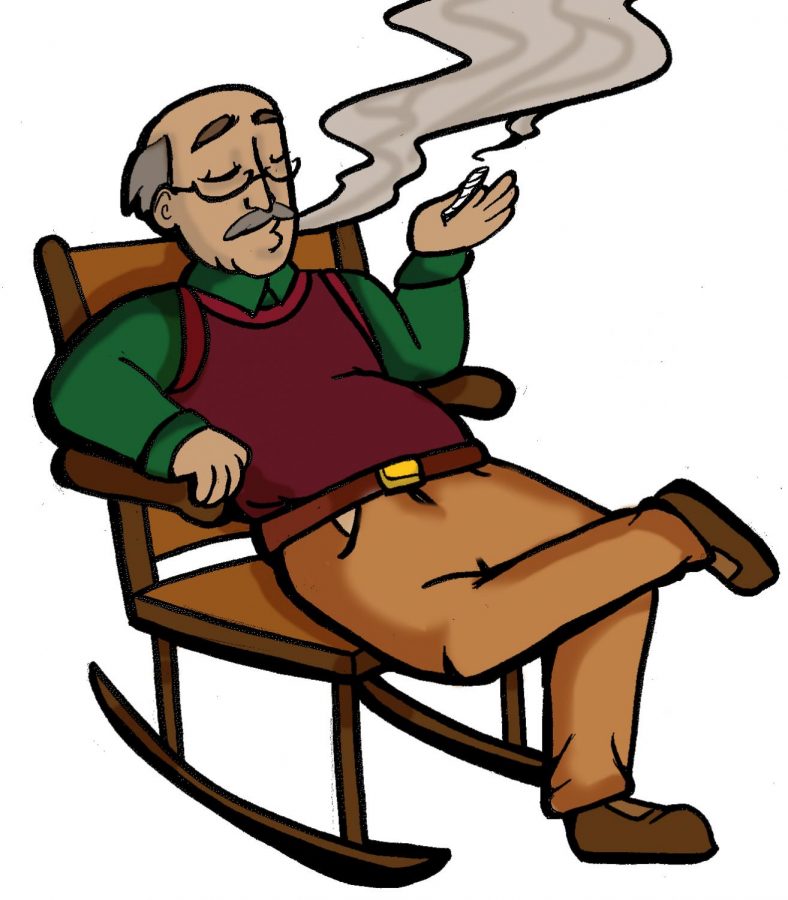Baby Boomer Weed Use Booms
September 17, 2018
Mom and dad are coming home. You shoot into fight or flight mode, frantically lighting candles and incense to drown out the stench of the smoke sesh you’ve just completed. Little do you know, your parents are airing out the car at the same time, disposing of their finished blunt as they cruise through the cul-de-sac. Who knew you and your parents had the same recreational drug habits?
That’s not exactly what researchers from NYU’s School of Medicine would tell you about the study they recently completed; however, Dr. Joseph Palamar and Dr. Benjamin Han did conclude that baby boomers — people between the ages of 50 and 64 — smoked double the amount of weed that people of the same age group smoked in 2006.
Palamar, an associate professor in the department of Population Health, and Dr. Benjamin Han, an assistant professor in the departments of Medicine and Population Health, of NYU’s School of Medicine poured over more than 17,000 responses to the 2015-2016 National Survey on Drug Use and Health. They found that approximately nine percent of baby boomers reported using marijuana in the last year.
But, the findings may not be entirely due to an actual increase in use. Palamar, an epidemiologist, said many of the users that contributed to the increase were not new to weed, just to the baby boomer demographic.
“A pretty large majority had at least initiated when they were teenagers or in their 20s,” Palamar said. “These are not new users. Given that there aren’t that many new initiates, I think that there are just a lot of people in their 40s who are now aging into their 50s who happen to use weed.”
Palamar indicated that even so, it is still possible more people are smoking weed simply due to how prevalent and permissible the drug’s use has become in America today.
“Weed is so prevalent in society and now policies are becoming more liberal, it’s more socially accepted,” Palamar said. “It’s becoming legalized; it’s not really taboo anymore.”
Especially for this older generation, Palamar worries about the impacts marijuana use may have on users.
“Weed has changed a lot over the decades, at least according to [Drug Enforcement Administration] statistics,” he said. “We see a lot of weed has gotten stronger over the years. When you’re young, you can probably handle a drug more; you have less to lose in regards to a job [and] you probably don’t have a family of your own yet. But when you’re older, you could have a lot more to lose if something goes wrong legally.”
Perhaps equally troubling is one of the study’s other conclusions — that adults who used marijuana were more likely to report use of other harmful substances.
“We anticipated that the prevalence rate of marijuana use by older adults would continue to increase,” Han said in an email. “But what surprised me the most was the high levels of unhealthy substance use — alcohol, tobacco, cocaine, prescription drug misuse — by older adults who used marijuana compared to those that didn’t.”
Regardless of other drug use, Dr. Han suggested older users should be especially careful when smoking marijuana.
“All medications have risks, and since marijuana has psychoactive properties, it could potentially cause adverse reactions in older people who are more susceptible to them,” Han said.
Email Deets Sharma at [email protected].
A version of this article appeared in the Monday, Sept. 17 print edition.






















































































































































